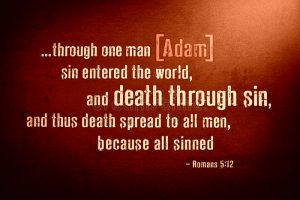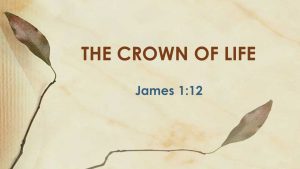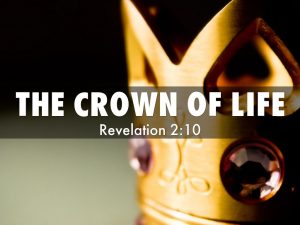I interviewed Frank Viola for my podcast today. We discussed his new book, Insurgence: Reclaiming the Gospel of the Kingdom, and as we talked, I literally got goosebumps because of some of the things he said.
You’ll need to listen to the podcast episode to see if the same thing happens to you.

Along with presenting some revolutionary ideas about the kingdom of God, baptism, the world system (principalities and powers), and how to approach the divisive political landscape today, he also explained the tricky texts of Luke 17:20-21 and Matthew 11:12.
These two texts say this:
Luke 17:20-21. Now when He was asked by the Pharisees when the kingdom of God would come, he answered them and said, “The Kingdom of God does not come with observation; nor will they say, ‘See here!” or ‘See there!’ For indeed, the kingdom of God is within you.
Matthew 11:12. And from the days of John the Baptist until now the kingdom of heaven suffers violence, and the violent take it by force.
Listen to the podcast to learn what these verses mean.
Here are the links that were mentioned by Frank Viola in the discussion:
- (#AmazonAdLink) Insurgence (on Amazon)
- Insurgence Website (for more information and the bonus downloads)
- Frank Viola’s main website




 The three terms are faith, save, and dead. These three key terms in James 2:14-26 help bring clarity to this much-debated text.
The three terms are faith, save, and dead. These three key terms in James 2:14-26 help bring clarity to this much-debated text. If you are genuinely concerned about the poor and hungry in your midst, it is fine to believe that God can do something about it, if you also believe that God is going to do something about it through you.
If you are genuinely concerned about the poor and hungry in your midst, it is fine to believe that God can do something about it, if you also believe that God is going to do something about it through you.
 When a person’s spirit leaves their body, does this mean that the body does not exist, or that it never existed? No, of course not. The body is still there, even after the spirit departs. But the body is no longer accomplishing the purpose and goal which God intended for it.
When a person’s spirit leaves their body, does this mean that the body does not exist, or that it never existed? No, of course not. The body is still there, even after the spirit departs. But the body is no longer accomplishing the purpose and goal which God intended for it. Only in this way does our faith get put into practice and fulfill the plans and goals of God.
Only in this way does our faith get put into practice and fulfill the plans and goals of God.





 But is this what Paul has in mind?
But is this what Paul has in mind? But a careful study of what Genesis 2–7 teaches about death and dying leads us in a very different direction.
But a careful study of what Genesis 2–7 teaches about death and dying leads us in a very different direction. The first death in the Bible is when Cain murders his brother Abel as a result of jealous rivalry (Genesis 4:8). Many Christians believe that the first death in the Bible occurs when God sacrificed a sheep in Genesis 3:21 or when Abel made a similar sacrifice in Genesis 4:4.
The first death in the Bible is when Cain murders his brother Abel as a result of jealous rivalry (Genesis 4:8). Many Christians believe that the first death in the Bible occurs when God sacrificed a sheep in Genesis 3:21 or when Abel made a similar sacrifice in Genesis 4:4. But beyond this, the source of the violent murder is Cain’s desire to have what Abel has, and the rivalry he engages in to obtain it (cf. Genesis 4:5-7). Furthermore, Cain then goes off to found a city (Genesis 4:17), which shows that murder and violence is at the foundation of all human civilization.
But beyond this, the source of the violent murder is Cain’s desire to have what Abel has, and the rivalry he engages in to obtain it (cf. Genesis 4:5-7). Furthermore, Cain then goes off to found a city (Genesis 4:17), which shows that murder and violence is at the foundation of all human civilization. In Genesis 6 we see that this seventy sevenfold vengeance has overtaken the whole earth so that now, everyone is only evil all the time and violence has covered the whole earth (Genesis 6:5, 11). The one thing that God did not want to happen has happened. In Genesis 6 all humans are engaged in violence against all other humans. The earth is suffering from an all-consuming contagion of violence.
In Genesis 6 we see that this seventy sevenfold vengeance has overtaken the whole earth so that now, everyone is only evil all the time and violence has covered the whole earth (Genesis 6:5, 11). The one thing that God did not want to happen has happened. In Genesis 6 all humans are engaged in violence against all other humans. The earth is suffering from an all-consuming contagion of violence. Paul goes on to contrast this with the righteousness that is in Jesus Christ (Romans 5:16-18). Therefore, as with many other words in this dictionary, the concept of death in Romans in closely connected with other key words that must also be understood in order to grasp Paul’s overall argument.
Paul goes on to contrast this with the righteousness that is in Jesus Christ (Romans 5:16-18). Therefore, as with many other words in this dictionary, the concept of death in Romans in closely connected with other key words that must also be understood in order to grasp Paul’s overall argument.

 There are five crowns mentioned in Scripture. They are the Everlasting Crown (1 Cor 9:25), the Crown for the One who Wins Souls (Php 4:1; 1 Thess 2:19), the Crown of Righteousness (2 Tim 4:8), the Crown of Glory (1 Pet 5:4), and the Crown of Life (Jas 1:12; Rev 2:10).
There are five crowns mentioned in Scripture. They are the Everlasting Crown (1 Cor 9:25), the Crown for the One who Wins Souls (Php 4:1; 1 Thess 2:19), the Crown of Righteousness (2 Tim 4:8), the Crown of Glory (1 Pet 5:4), and the Crown of Life (Jas 1:12; Rev 2:10). Eternal life is a free gift to everyone and anyone who believes in Jesus for it. You do not have to work your way to eternal life. Eternal life cannot be earned or kept by good works.
Eternal life is a free gift to everyone and anyone who believes in Jesus for it. You do not have to work your way to eternal life. Eternal life cannot be earned or kept by good works. The crown of life that James mentions here is often confused with eternal life.
The crown of life that James mentions here is often confused with eternal life. The crown mentioned in Revelation 2:10 is also the crown of life mentioned in James 1:12. In both cases, the crown of life is a special honor, reward, or recognition given by Jesus to those who stand up against the temptation and trials of the devil.
The crown mentioned in Revelation 2:10 is also the crown of life mentioned in James 1:12. In both cases, the crown of life is a special honor, reward, or recognition given by Jesus to those who stand up against the temptation and trials of the devil.
